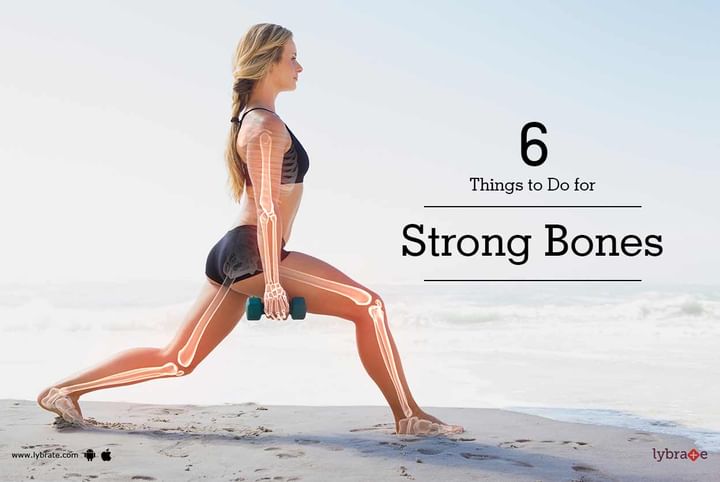Get the App
For Doctors
Login/Sign-up
Last Updated: Jan 10, 2023
BookMark
Report
6 Things to Do for Strong Bones
Dr. Prof. Anil AroraOrthopedic Doctor • 41 Years Exp.Common Wealth Fellow Joint Replacement, DNB - Orthopedics, MS - Orthopaedics, MBBS
Bones are quite literally the support system of the body, so it's super important to keep them strong and healthy. Strength is not a goal you achieve in a day, week or month. It is a way more rigorous process that has to go on for years. The growing age of your life matters the most; it is at this point that you can make your bones strong. Bone strength should also be maintained in certain ways. Child or adult, you must aim for both mental and physical strength.
Here are some tips to make deposits in your bone bank for a healthier future:
- Know your family history: As with many medical conditions, family history is a key indicator of bone health. Those with a parent or sibling who has or had osteoporosis are more likely to develop it. So, how's your bone density, grandma? might seem like an awkward question at thanksgiving dinner, but ask anyway before she passes the gravy.
- Boost calcium consumption: When most people think bones, they think calcium. This mineral is essential for the proper development of teeth and bones. But calcium isn't the end-all, be-all bone loss cure. The key might be to help the body absorb calcium by pairing calcium-rich foods with those high in vitamin d. Foods that are good sources of calcium include yogurt, cheese, milk, spinach and collard greens.
- Don't forget the vitamin d: where there's calcium, there must be vitamin d: the two works together to help the body absorb bone-boosting calcium. Boost vitamin d consumption by munching on shrimp, fortified foods like cereal and orange juice, sardines, eggs (in the yolks) and tuna, or opt for a vitamin d supplement. The body also produces vitamin d when exposed to the sun - 10 to 15 minutes of exposure three times per week will do. Vitamin d's importance to bone health has been proven in studies on seasonal bone loss - elderly people can lose more bone mass during the winter because of lack of sun exposure.
- Make exercise a priority: Seriously regular exercise is to keep a number of health issues at bay, and bone health is no exception. In fact, living a sedentary lifestyle is considered a risk factor for osteoporosis. What type of exercise is most effective? weight-bearing exercises like running, walking, jumping rope, skiing and stair climbing keep bones strongest.
- Consume less caffeine: Caffeine does have some health benefits, but unfortunately not for our bones. Too much of it can interfere with the body's ability to absorb calcium. Drinking more than two cups of coffee per day accelerated bone loss in subjects who also didn't consume enough calcium. Also more than 18 ounces of coffee per day can accelerate bone loss by negatively interacting with vitamin d. So enjoy the java, but keep it in moderation and consume enough calcium, too.
- Quit smoking: Here's yet another reason to lose the cigarettes: multiple studies have shown that smoking can prevent the body from efficiently absorbing calcium, decreasing bone mass.



+1.svg)
